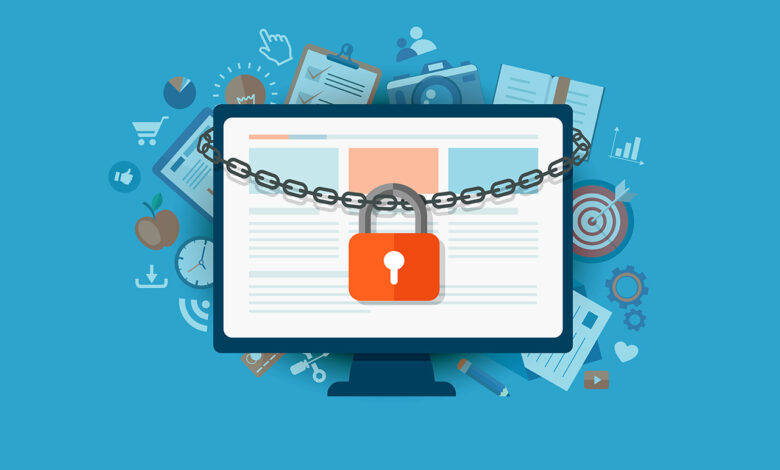Digital Privacy in 2025: Protecting Your Personal Data in the Digital World

In today’s digital age, privacy has become a major concern. With the rapid advancement of technology, an increasing number of our personal details are stored online, making us more vulnerable to cyber threats. Whether it’s our social media profiles, banking information, or even our health data, protecting our digital privacy is more important than ever.
As we move into 2025, the challenges surrounding digital privacy continue to evolve, and the need for safeguarding personal data is only growing. In this article, we will explore the concept of digital privacy, discuss the importance of protecting your personal data, and provide practical tips for securing your online presence.
What is Digital Privacy?
Digital privacy refers to the protection of personal information in the online environment. This includes data collected from your online activities, such as browsing history, social media interactions, location data, financial transactions, and even personal conversations. With the increased use of online platforms for everything from shopping and banking to socializing and working, protecting digital privacy has become a critical aspect of modern life.
Personal data is valuable, and while many companies rely on it for targeted advertising and analytics, it also poses a risk when exposed to hackers, data breaches, or unauthorized third parties. Digital privacy aims to ensure that your personal information is not misused or exploited by malicious actors.
Why is Digital Privacy Important?
1. Protection from Identity Theft
One of the most significant threats to digital privacy is identity theft. Cybercriminals can steal your personal information, such as your Social Security number, credit card details, or login credentials, to commit fraud and damage your financial and personal reputation. By safeguarding your digital privacy, you can reduce the risk of falling victim to identity theft.
- Data breaches at large corporations have made millions of personal records available to hackers. Protecting your digital privacy through strong passwords, encrypted communication, and secure accounts can help mitigate this risk.
2. Preventing Financial Fraud
Your online transactions and banking activities are crucial to your financial well-being. Without proper digital privacy protection, hackers could gain access to your financial accounts, making unauthorized transactions or stealing funds. By using secure payment methods and monitoring your accounts regularly, you can protect yourself from financial fraud.
- Two-factor authentication (2FA) and encrypted payments are critical components of ensuring your financial data remains secure.
3. Preserving Personal Freedoms
In an era where our every move is tracked, it’s vital to preserve the freedom to communicate and act without fear of surveillance. Governments, corporations, and even malicious actors can use your online data for various purposes, including tracking your behavior, manipulating your decisions, or selling your information to advertisers.
- Digital privacy protects your ability to browse, shop, and interact online without constantly being watched or profiled.
4. Maintaining Data Ownership
In a world where large corporations control vast amounts of personal data, digital privacy helps you maintain ownership of your information. By understanding how your data is collected and used, you can make informed decisions about who accesses your personal details.
- Using privacy-focused platforms, encryption tools, and transparent data policies allows you to retain control over your personal information.
Key Risks to Digital Privacy
While the benefits of digital privacy are clear, there are several risks that can compromise your personal data. Understanding these risks will help you take proactive steps to protect your information.
1. Data Breaches
Data breaches occur when cybercriminals gain unauthorized access to an organization’s database. This can expose a vast amount of personal information, including names, addresses, credit card numbers, and even passwords. Large-scale data breaches have affected millions of users and organizations, making digital privacy a top priority for online safety.
- Protecting your personal data by using strong, unique passwords and enabling two-factor authentication (2FA) can minimize the damage from data breaches.
2. Malware and Phishing Attacks
Cybercriminals often use malware (malicious software) or phishing attacks to gain access to your devices and steal your information. Phishing attacks typically involve fraudulent emails or websites that look legitimate, tricking you into sharing sensitive details like passwords or credit card numbers.
- Digital privacy can be compromised if you fall for phishing scams or download malicious software onto your devices. Always verify the authenticity of emails, links, and websites before sharing personal information.
3. Surveillance and Tracking
From governments to tech companies, surveillance has become a growing concern for digital privacy. Governments may monitor online activities for national security purposes, while companies use data tracking to create targeted ads and marketing strategies. Both can infringe on your privacy.
- Use tools like VPNs (Virtual Private Networks), ad blockers, and secure search engines (such as DuckDuckGo) to minimize tracking and enhance privacy.
4. Third-Party Data Sharing
Many apps and websites share your personal information with third-party companies for marketing, analytics, or research purposes. This data can be sold, traded, or used without your consent.
- Carefully review the privacy policies of apps and websites you use, and limit the permissions granted to these services. Consider using privacy-focused apps and services that prioritize data protection.
- Also Read: The Future of Wearable Technology: Transforming Health, Fitness, and Daily Life in 2025

How to Protect Your Digital Privacy
1. Use Strong, Unique Passwords
Strong, unique passwords are the first line of defense against cyber threats. Avoid using easy-to-guess passwords and never reuse passwords across multiple accounts. Consider using a password manager to store your passwords securely.
- Make sure to incorporate upper and lowercase letters, numbers, and special characters to create strong passwords.
2. Enable Two-Factor Authentication (2FA)
Two-factor authentication adds an extra layer of security to your accounts. By requiring a second form of verification (such as a text message or authentication app), 2FA makes it much harder for hackers to access your accounts.
- Most major services, including Google, Facebook, and banking apps, offer 2FA to help secure your accounts.
3. Use a Virtual Private Network (VPN)
A VPN encrypts your internet connection, making it more difficult for hackers and trackers to monitor your online activities. It’s especially useful when using public Wi-Fi networks, which are often less secure.
- VPNs help mask your IP address, ensuring that your online actions remain private and anonymous.
4. Limit Data Sharing
Be cautious about what personal information you share online. Review app permissions and only provide necessary data. When possible, opt for services that prioritize digital privacy, and avoid services that ask for excessive amounts of personal data.
- Incognito or private browsing modes can also help prevent your browsing history from being tracked.
5. Encrypt Your Communications
Encrypting your emails, text messages, and other forms of communication ensures that only you and the recipient can read the content. Many messaging apps, like Signal and WhatsApp, offer end-to-end encryption to protect your conversations.
- Use encrypted email services or tools like PGP (Pretty Good Privacy) for added security.
6. Keep Your Software Updated
Cybersecurity experts regularly release software updates that patch vulnerabilities in operating systems, apps, and devices. Make sure your devices are always up to date to protect against known exploits and bugs.
- Enable automatic updates for your operating system, browsers, and apps to stay protected against the latest threats.
Conclusion: The Importance of Digital Privacy in 2025
As we move further into the digital age, digital privacy will continue to be a critical concern. With the rapid growth of online services, the increasing prevalence of cyber threats, and the collection of vast amounts of personal data, taking steps to protect your privacy is more important than ever.
By using the right tools, staying informed about privacy risks, and being mindful of how you share your data online, you can safeguard your personal information and ensure your digital privacy remains intact.





One Comment